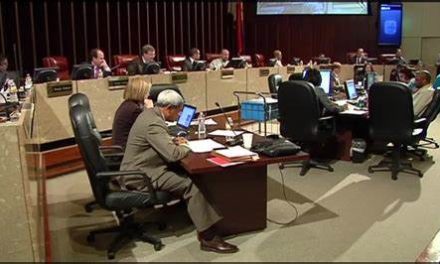There’s one fact of life about today’s news media that’s always disconcerting to us – the way that people become one-dimensional caricatures of themselves.
Willie Herenton is arrogant, Henri Brooks is unpatriotic, Wyatt Bunker is a knee-jerk right winger, Ken Whalum is difficult and Ophelia Ford is unprincipled.
The truth is that none of us are cardboard cutouts. Neither are they. We are all complicated and complex, and unfortunately, the news media doesn’t do complicated and complex well at all.
New Thinking
So, instead, we often come to see people as the worst aspects of their personalities rather than the totality of the good and the bad that forms them.
This is especially true of the mayors in Shelby County’s municipalities. We rarely hear about them until there is some controversy – normally caused by the latest volley from Mayor Herenton – in which they are cast as enemies of Memphis or unsympathetic to the concerns of the city. They are regularly trotted out to oppose the latest government consolidation plan or changes in schools.
It’s a far cry from reality as Germantown Mayor Sharon Goldsworthy and Bartlett Mayor Keith McDonald proved in recent thoughtful, hopeful presentations to Leadership Memphis. Both mayors called for more regional thinking about issues that affect every one in our community.
Others Figure It Out
“Other cities figure out ways to do it,” Mayor Goldsworthy said. “There is comprehensive political leadership that comes together in meaningful ways to conduct a community conversation on things like the airport, how to get light rail to work, and in Minneapolis/St. Paul, they even figured out a way to share sales taxes.”
We can start here by working on crime, “the #1 issue for all of us,” she said. “This isn’t just a Memphis issue. And neither is public education. Our quality of life depends on how well we educate our children – the children of Memphis just as much as how well we educate a child in Millington or Germantown. We’re willing to consider better ways to get it done.” She said that she is opposed to consolidating schools because she does not believe that the students’ academic performance improves.
She said that the anchor for the region is Memphis’ central city, and “together, we’re like a giant quilt. Some pieces are larger, some are slightly different fabric, but if we’re all stitched together, we can give comfort and safety to all of our people.”
Alike And Different
Mayor McDonald punctured any stereotypes of well-to-do white suburbs battling a majority African-American city. “We have people who are impoverished in Bartlett,” he said. “We have people with no hope. We must find answers to these problems, because we – our cities – are different and we are alike at the same time.”
He acknowledged that the suburban towns’ population blossomed in the 1970s, fueled by white flight. “Today, however, we’re not about white flight,” he said. “There is economic flight, and there is no color associated with it. We have grown from 5 to 20% minority. The middle class – both white and black – are leaving (Memphis) and many of them are ending up in our cities.”
While he is focused on the future of Bartlett, he said that he also supports the city that lies at the heart of the region. “Memphis needs to be vibrant,” he said. “It needs to be diverse. We are proud of the way we look in Bartlett, and we need every city competing to be the best.
Being The Best
“I want to be talking about the fact that we have the best schools. I want to talk about the fact that we have the best neighborhoods. We need things to brag about. Memphians – in the broad sense of the term – are our own worst enemies. We hurt ourselves when we bad mouth ourselves and each other. Let’s talk about the good things and success.”
In closing, Mayor McDonald called on every citizen to be part of creating a “regional good feeling” and dealing with reality instead of stereotypes. “Some people think that Bartlett is white bread. It’s not. We’re multi-grain bread. We see kids playing soccer together, people of all backgrounds living together. If we sit down together and work together (as a region) and get excited about ourselves, we can make the kind of future that we all want.”
They got a standing ovation.



